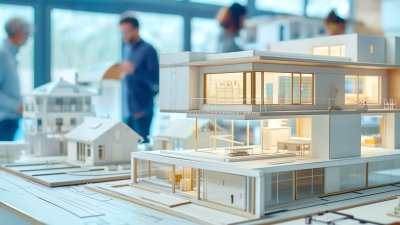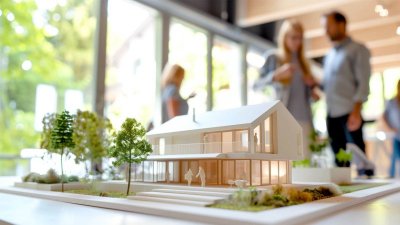Sustainability is playing an increasingly important role in construction. While traditional construction methods are often associated with high energy and material consumption, modern alternatives focus on efficiency and environmental friendliness. Timber construction and modular construction in particular are becoming increasingly important. But what makes these construction methods so attractive for owners and investors?
Timber construction: natural, sustainable and energy-efficient
Wood as a building material offers many advantages:
Good CO₂ balance - wood binds CO₂ and thus reduces the ecological footprint of a building.
Fast construction - Thanks to industrial prefabrication, timber houses can often be erected in just a few weeks.
Pleasant living climate - wood regulates the humidity and ensures a healthy indoor climate.
Modular construction: flexibility and time savings
In modular construction, individual building components are pre-produced in factories and assembled on site. This results in numerous advantages:
Short construction time - A modular house can be completed within a few months.
Lower construction costs - Costs can be reduced through standardized construction elements.
Sustainability - Resource-saving production and reduced construction site waste make modular construction more environmentally friendly.
Sustainability as a sales argument
Energy-efficient construction methods are not only good for the environment, but also for the value of the property. Buyers increasingly value sustainable building concepts and are prepared to invest more for an environmentally friendly home. There are also numerous state subsidies for sustainable construction projects.
Conclusion
Timber and modular construction offers an environmentally friendly, cost-efficient and fast alternative to conventional construction methods. Anyone who invests in a sustainable construction project benefits in the long term from lower operating costs, high value stability and attractive funding opportunities.
© immonewsfeed




